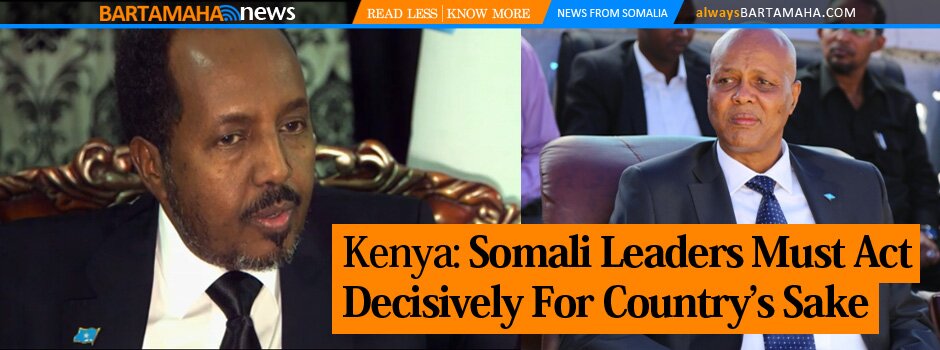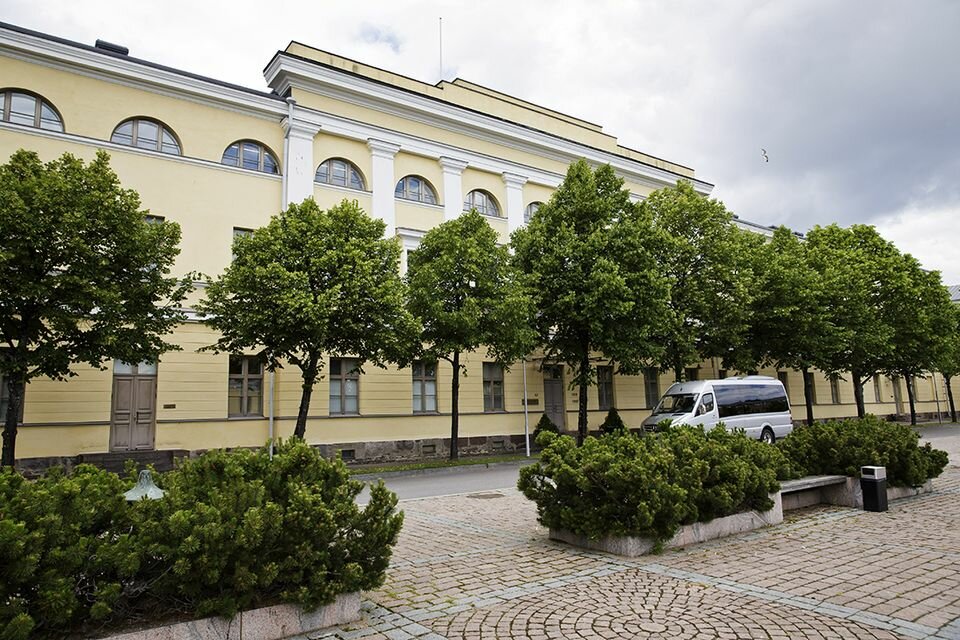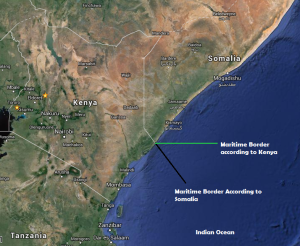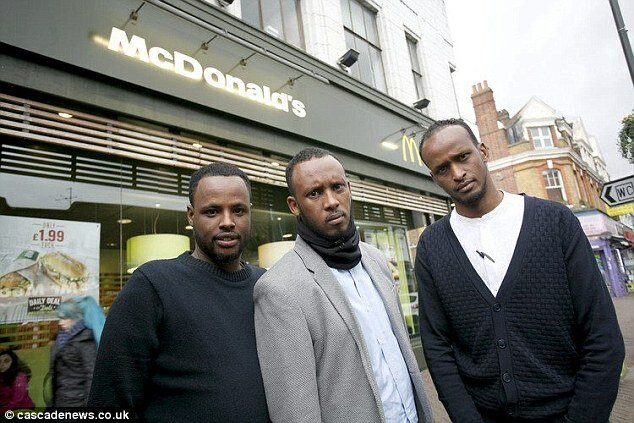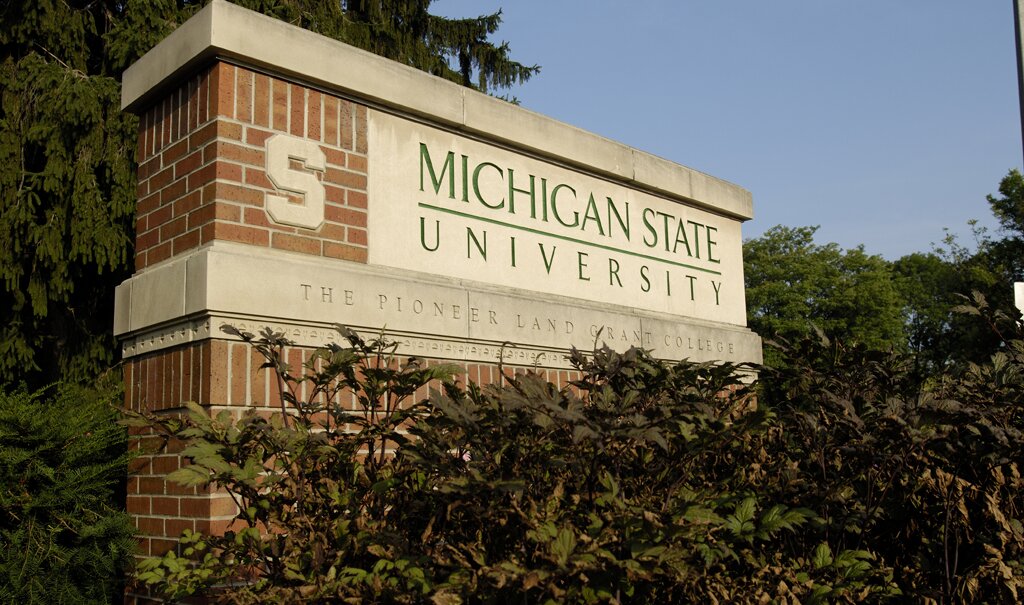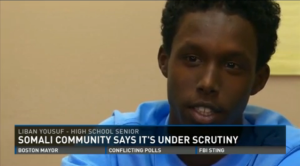British-Somali man’s family fear US is secretly holding him
 The family of a young Somali-British man who disappeared from Mogadishu believes he is being secretly held by US agencies, his father has told the Bureau.
The family of a young Somali-British man who disappeared from Mogadishu believes he is being secretly held by US agencies, his father has told the Bureau.
Mahdi Hashi, 23, was informed in June that he was to lose his British citizenship because he ‘present[ed] a risk to national security’. Weeks later he disappeared from the outskirts of Mogadishu, and his family later heard from someone who had recently been released from prison in Djibouti that Mahdi had been detained alongside him.
His father Mohamed Hashi believes he may have been ‘extraordinarily rendered’, and is now being held at an unknown location by the United States. A press officer at the US State Department told the Bureau that ‘We do not have anything on this to share publicly at this time.’
‘Our fears are whether he’s healthy, his whereabouts, whether we’re going to see him again,’ Mohamed Hashi told the Bureau. ‘We’re worried about the way he’s being treated – maybe he’s being tortured.’
Born in Somalia, Hashi arrived in the UK as a child and grew up in Camden, north London, becoming a British citizen at the age of 14. A devout Muslim, he worked as a carer but claimed he and a group of friends were coming under pressure from the British security services to work for them, and in 2009 the group told the Independent they had come under sustained pressure from MI5 to become informants.
One of them, Nur Mohamed, said an intelligence officer told him: ‘Mohamed if you do not work for us we will tell any foreign country you try to travel to that you are a suspected terrorist.’
Hashi claimed he was repeatedly stopped at borders and that MI5 agents had warned him he would be flagged up as a terrorist and face travel restrictions unless he co-operated.
He returned to Somalia in 2009, where he married and had a son. In June 2012, a letter delivered to Hashi’s family home in London informed him that the home secretary Theresa May had decided to strip him of his British citizenship, claiming he had been ‘involved in Islamist extremism’.
The letter added that he had four weeks to appeal, but he disappeared before he was able to act.
A man later contacted his family in Somalia claiming he had been held alongside Hashi in a Djibouti jail.
Mahdi’s father Mohamed Hashi told the Bureau: ‘He said [Hashi] was fingerprinted and his DNA was taken, and they found out that he was a British citizen and contacted the British consulate – but the British said sorry, we took his citizenship away from him and we can’t help him.’
Campaign group CagePrisoners is concerned that Hashi may have been extraordinarily rendered by the US. Research director Asim Qureshi said: ‘His location and condition of detention are still unknown up to this date and the UK authorities have refused to help on this matter, arguing that he was no longer a British citizens so that Britain has no responsibility over his case.’
The fellow prisoner said they had been held at ‘Nagana prison’. This may refer to Nagad Detention Centre, two formal incarceration facilities in the tiny East African country. It is ‘not part of the prison system’, according to the US State Department, which notes it is mainly used for housing ‘undocumented migrants‘.
But in 2011 a UN report by the High Commissioner for Refugees said Nagad was ‘regularly used for the arbitrary detention of people who are critical of the Government’. And Human Rights Concern Eritrea has claimed Nagad holds over 300 Eritrean military detainees, of whom 58 were said to be in ‘extremely poor health’. A statement published by the group in October claimed: ‘Conditions were so bad that some of the detainees looked barely human’.
Mohamed Hashi said his son’s fellow inmate told the family: ‘The place is bad and there was a bit of mistreatment.’ The man claimed that Hashi was taken by ‘Americans’ before he could be released.
Continuing renditions?
Mahdi Hashi passed through Djibouti on a number of previous occasions when visiting relatives in Somalia. It’s not known whether he made his own way to the small nation on this occasion, or was forcibly abducted and transferred to jail there.
If abducted his case would fit an established pattern of renditions – where individuals are transported between countries for interrogation without judicial process, according to Clara Gutteridge, an expert on rendition and director of the Equal Justice Forum.
‘There have been renditions, disappearances in and out of Somalia since at least 2001, but now, because the Horn of Africa is the new front in the war on terror, it’s becoming an increasing issue. What this young man’s family is saying about his disappearance from Mogadishu is highly plausible in relation to what we are seeing,’ she said.
Gutteridge points out that Djibouti has served as a ‘regional rendition hub’, with individuals captured elsewhere held there – sometimes in the charge of the Djibouti authorities – before being handed to the US and being transferred elsewhere.
Djibouti is also home to Camp Lemonnier, the base for drones flying over both Somalia and Yemen, which also hosts intelligence personnel. The US provides ‘human rights training’ to Djibouti’s prison guards, the State Department notes.
Leaked Guantanamo files released by WikiLeaks that reveal in 2004 Guleed Hassan Ahmed was arrested from his house and held by the Djibouti authorities before being handed to the US and transferred to Guantanamo. And in 2007, Abdullahi Sudi Arale was arrested by Djiboutian authorities at passport controls and held before being transferred to the US-run Camp Lemonnier and then on to Guantanamo Bay.
Last year Yemeni businessman Mohammed Abdullah Saleh al-Asad took Djibouti’s government to court for the part it allegedly played in his abduction and rendition from Tanzania in 2004. Histestimony describes in detail how he was held in a Djibouti cell and interrogated at length by an individual who identified herself as American, before being transported to other sites. He claims that from Djibouti, he was taken to four secret prisons around the world over 16 months, and experienced abuses including sleep deprivation, constant blaring music and ‘dietary manipulation’ – being fed dietary supplements in place of food.
Executive order
When he was running for president, Barack Obama was highly critical of President Bush’s counterterrorism policies, pledging to end ‘the practices of shipping away prisoners in the dead of night to be tortured in far-off countries, of detaining thousands without charge or trial, of maintaining a network of secret prisons to jail people beyond the reach of law… That will be my position as president. That includes renditions.’
One of his first actions in office was to sign executive orders closing Guantanamo and announcing an end to CIA secret prisons. But crucially this second order excluded ‘facilities used only to hold people on a short-term, transitory basis’.
In recent years the US has moved towards providing information – and funding – to other countries in order that they can capture and transfer suspects, Gutteridge says. In 2009, Ahmed Abdullahi Hassan was rendered from Kenya to a Somali prison based on information provided by the US, officials told reporter Jeremy Scahill. Although the prison was nominally run by Somalia, the US paid staff salaries and directly interrogated prisoners.
Clara Gutteridge said: ‘Hashi disappeared in Mogadishu and reappeared in Djibouti: unless he went to Djibouti and got arrested, there’s no way that could have happened without rendition. None of what’s happened could be happening without some form of US assistance – it fits with US foreign policy and counterterrorism policy.’
Mohamed Hashi is adamant his son has no links to terrorism – but believes Mahdi’s disappearance is closely related to his losing his citizenship. ‘MI5 and the British government, they know his whereabouts – they want to keep him out of the country,’ he said. ‘They know where he is, but they will not help.’
A Home Office spokeswoman said: ‘We do not comment on security matters.’
Comments
comments
 Calendar
Calendar









